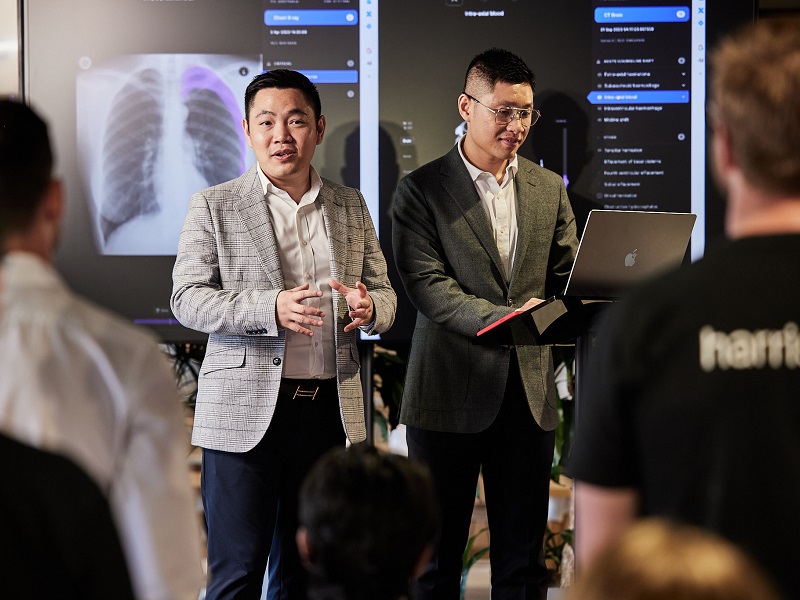Sydney-based Harrison.ai has launched a new AI model to help radiologists analyse and interpret their patients’ x-rays, proving twice as effective as major large language models.
On Thursday, the company launched Harrison.rad.1, which can generate specialised reports based on a particular patient’s context and clinical history and enables radiologists to ask open-ended questions about x-ray findings and analysis.
The model outperformed competitors developed by OpenAI, Anthropic, Google and Microsoft on a notoriously difficult Fellowship of the Royal College of Radiologists exam, performing on-par with “accredited and experienced radiologists”, the company said.

Co-founder and chief executive Dr Aengus Tran said the company is “already excited by the performance of the model to date”, describing it as “groundbreaking”.
“It outperforms major LLMs in the Royal College of Radiologists’ (FRCR) 2B exam by approximately two times,” Dr Tran said.
“The launch of this model and our plan to engage in further open and competitive evaluation by professionals underscores our commitment to responsible AI development.”
Unlike its generative AI competitors, which are trained on general and open-source data sets, Harrison.rad.1 has been trained on proprietary clinical data including millions of real-world images, radiology studies and reports.
The data is also annotated by a large team of medical specialists to improve clinical safety and accuracy.
The company’s existing product Annalise.ai, focused on chest x-rays and CT scans, already has clinical approval for use in more than 40 countries.
It is already used by a third of radiologists in Australia as well as some hospitals in the United Kingdom and is reportedly now seeking a series C funding round to expand into the United States.
Harrison.ai director and Tesla chair Robyn Denholm said “the Harrison.rad.1 model is transformative and an exciting next step for the company”.
“Harrison.ai is delivering on the promise of helping solve real-world problems more effectively and reliably and helping to save lives,” Ms Denholm said.
The company’s announcement come on the same day as the release of proposed mandatory AI guardrails in high-risk settings by Industry and Science minister Ed Husic.
Among the 10 measures is a requirement to be transparent about data, models and systems, as well as implement data governance measures to assure quality and provenance.
Dr Tran said the company wants to remain a global voice in helping inform and contribute to an important conversation on the future of AI in healthcare.
“This is why we are making Harrison.rad.1 accessible to researchers, industry partners, regulators and others in the community to begin this conversation today,” Dr Tran said.
Do you know more? Contact James Riley via Email.

